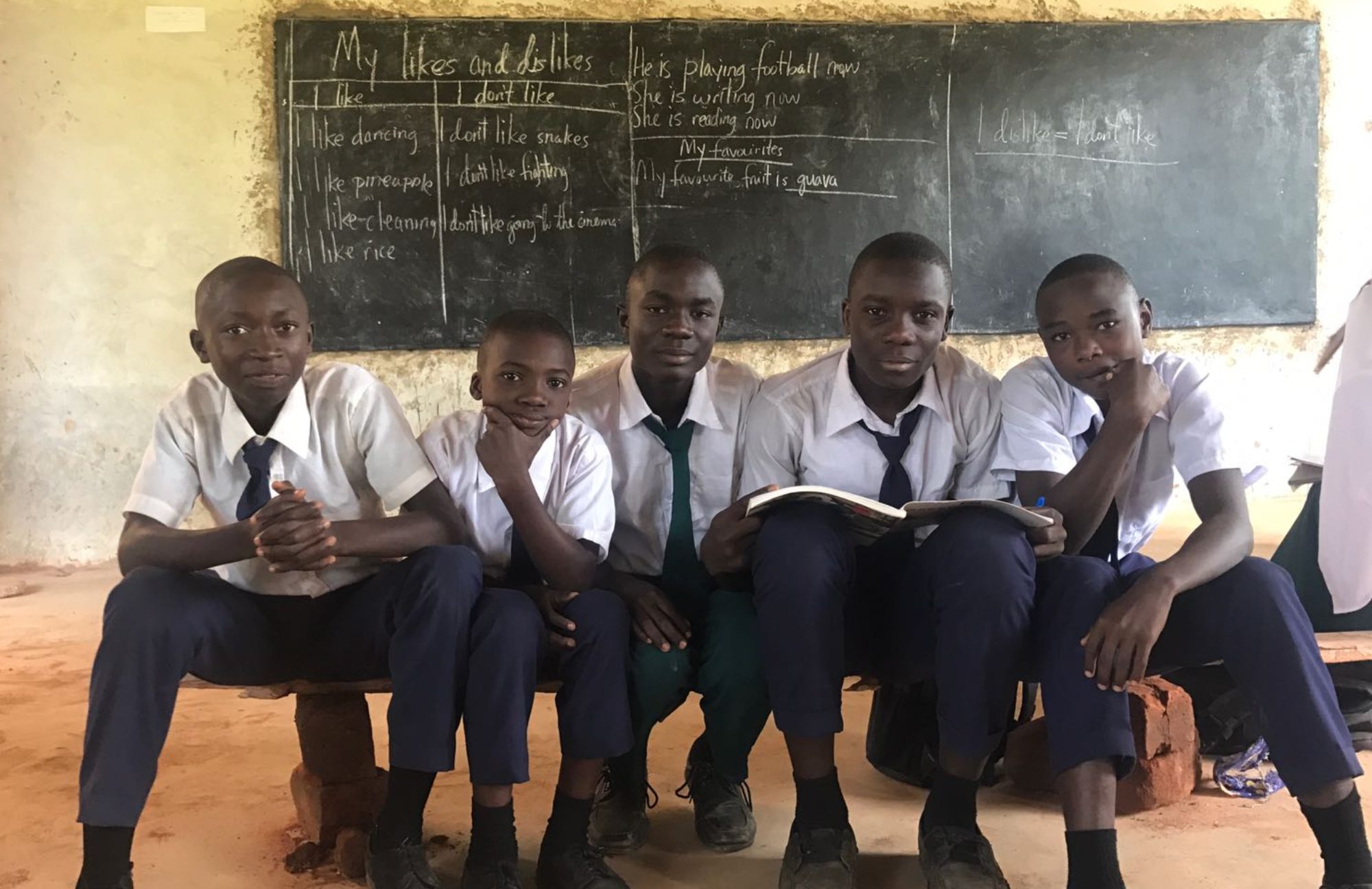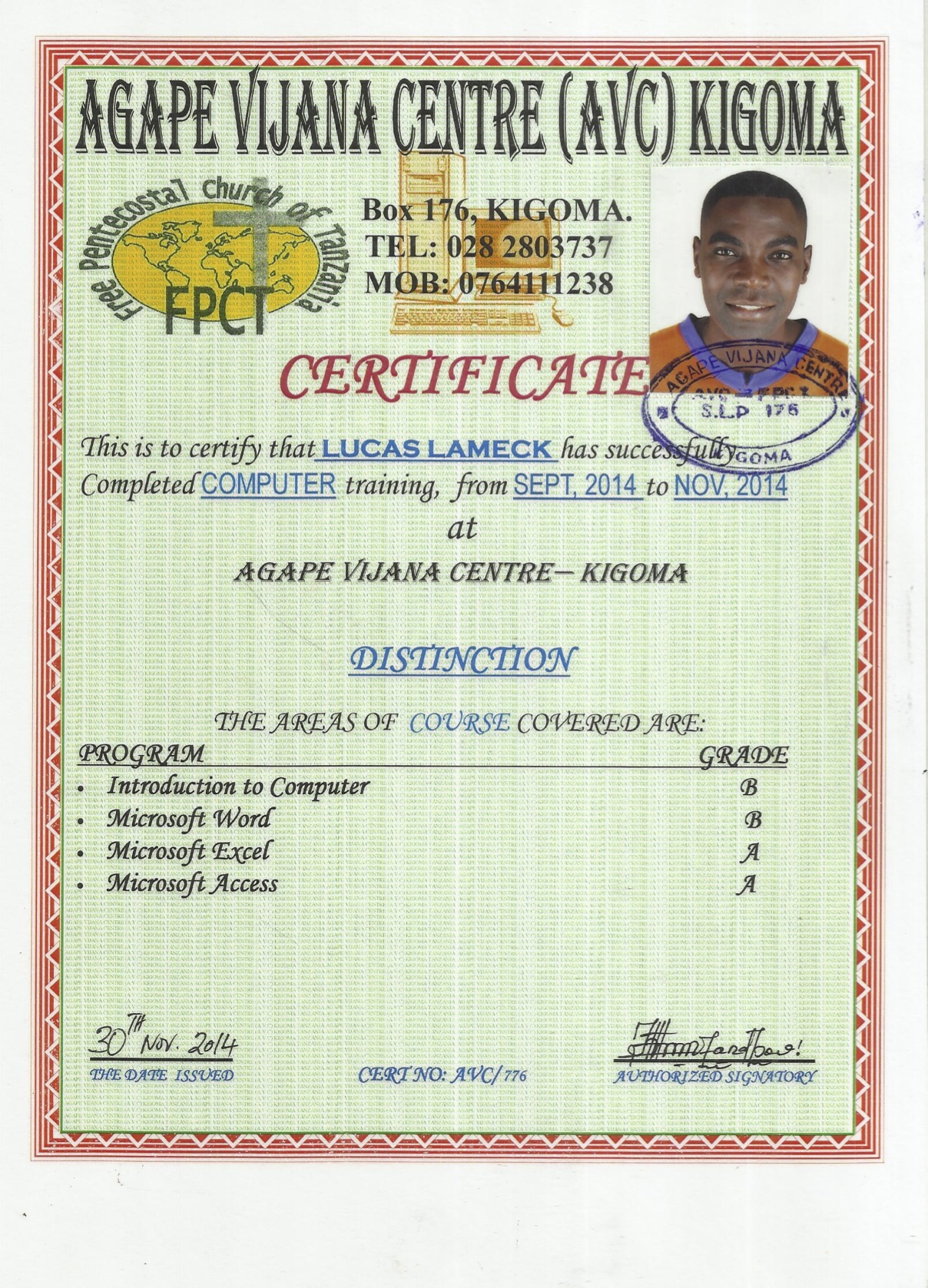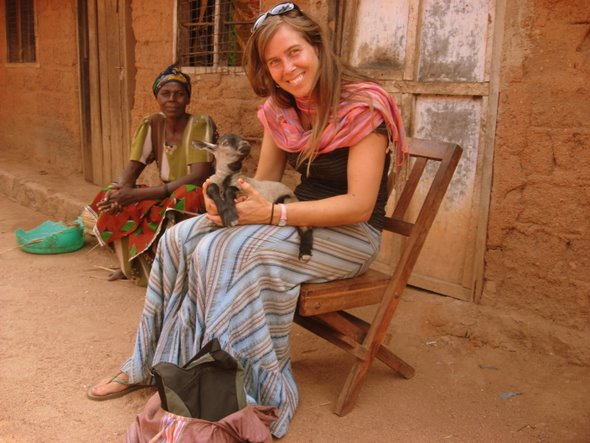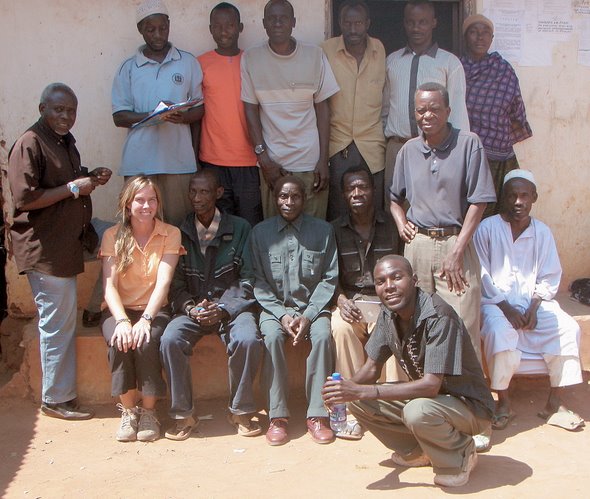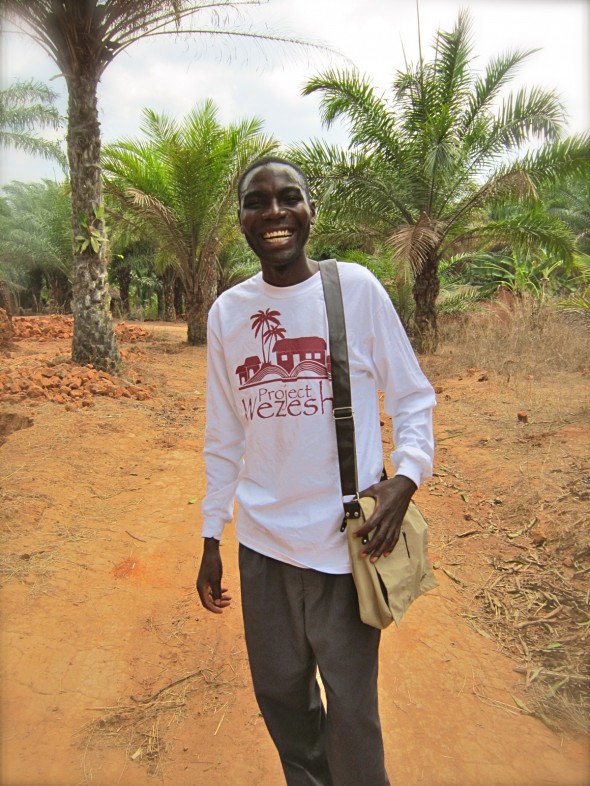 With his salary, one of the top priorities for Lucas was to continue his education. As soon as he started earning a salary for his work with Project Wezesha, he set to finding himself a school to attend. He was attending school for a short while before Tanzania passed a new ordinance – defeating many of its citizens who aspired to go back to school. This new ordinance, law, policy – whatever it is, says that students who passed their secondary examinations, qualifying them for high school, but who did not go directly to high school after secondary school could not return later to continue their education with currently matriculated, recent graduates of secondary school. So, in other words – if you finish secondary school and then take a few years to work to earn the money needed to pay for high school, you’ve just lost your chance at further education.
With his salary, one of the top priorities for Lucas was to continue his education. As soon as he started earning a salary for his work with Project Wezesha, he set to finding himself a school to attend. He was attending school for a short while before Tanzania passed a new ordinance – defeating many of its citizens who aspired to go back to school. This new ordinance, law, policy – whatever it is, says that students who passed their secondary examinations, qualifying them for high school, but who did not go directly to high school after secondary school could not return later to continue their education with currently matriculated, recent graduates of secondary school. So, in other words – if you finish secondary school and then take a few years to work to earn the money needed to pay for high school, you’ve just lost your chance at further education.
And so, Lucas along with (as he says) 80,000 others in the country, were kicked out of school. I suppose they’re just following suit with many other countries, such as the US that don’t allow 23 year olds to come back and finish high school after dropping out in the 10th grade, but it seems that here – circumstances are just different … or maybe they could have given them a 3-year notice so people could rush back for high school education before it was effective.
Fortunately, a teacher in the program that he was removed from advised him to seek instruction from private teachers. He would pay a similar amount but would work with teachers in a one-to-one capacity, studying the same subjects that he would be learning here in the high school setting. For Lucas, this was a minor set back, but ultimately, he just wanted the opportunity to continue his studies. Since locating good, available teachers, he has been studying 9 hours a day with three different teachers to cover various subjects including English, Physical Geography and History.
It’s been fun (and tiring) to listen to all the things he’s learned since going back to school. He told me about how much new information he’s gleaned about World Wars I and II, Hitler, Musolini and the Holocaust. I had just visited Ann Frank’s home in Amsterdam and bought The Diary of Ann Frank when I was there. I was excited to give that book to Lucas since he had so recently been diving into this tragic history.
In his English class, he has been reading some novels by an author from Cameroon. He told me how important it is to know the theme, the characters, the setting, the time period, etc. when reading a book. J Then he proceeded for an entire dala dala ride to Kiganza to tell me about the book – about the rebellious nature of the story’s female character and how the author was using this book to shake things up and shed light on local cultural practices that might not be so useful to society, such as arranged marriage and keeping girls out of school. Lucas knew the names of every character and as he told me the story, it no longer seemed like he was recapping a book, but rather telling me about these people he knew. His ‘clif notes’ were so thorough that I could pass an exam on the book.
Physical geography has certainly stuck with Lucas – I think it’s his favorite subject. I have heard him give mini-lectures on four occasions now (once to me, once to our friend Ashahadu, once to Hindu and Saidi and once to the group of our scholarship students) about various topics in physical geography, such as earthquakes. When recounting to Hindu, Saidi and Ashahadu, he was speaking mostly in Swahili, but as he is learning these subjects in English, the key terms are in English – so throughout his mini-lectures, I would pick up many terms such as mantle, core, magma, epicenter, plates, richter scale, seismology, etc. It made me smile to see how captive he held his young audience. He uses an engaging interactive lecture approach, being sure to ask them intermittent questions, pose situations to them and then ask them to recall what he just covered. He even rounded off the lectures with the students by posing some possible final examination questions that they might see after they complete Form 4 and calling on them to answer. They all told him he’s a great teacher and that he makes things clear to them.
Of course, all of these lectures flowed from his smile while either sitting atop a pile of stones at the building site of Amahoro Secondary School, while waiting for the delivery of wood or while making our casual stroll to and from Mgaraganza along narrow dirt trails, shaded by palm trees and flanked by various small scale agriculture crops. It’s so great to see him so excited about learning and hear all that he’s retained. It’s amazing how much more you keep under the lid when you’re learning because you want to and not because you have to. It’s also a nice testament to my career as a teacher educator to see the impact of good teachers – it’s often underestimated. Lucas has good teachers, Lucas is a good teacher. Our students often say that the teachers are lazy and don’t show up to school often enough and when they do, they don’t always teach very well. This makes me sad, but you can only do so much in one lifetime, so for now – we build. Perhaps later we train the teachers.
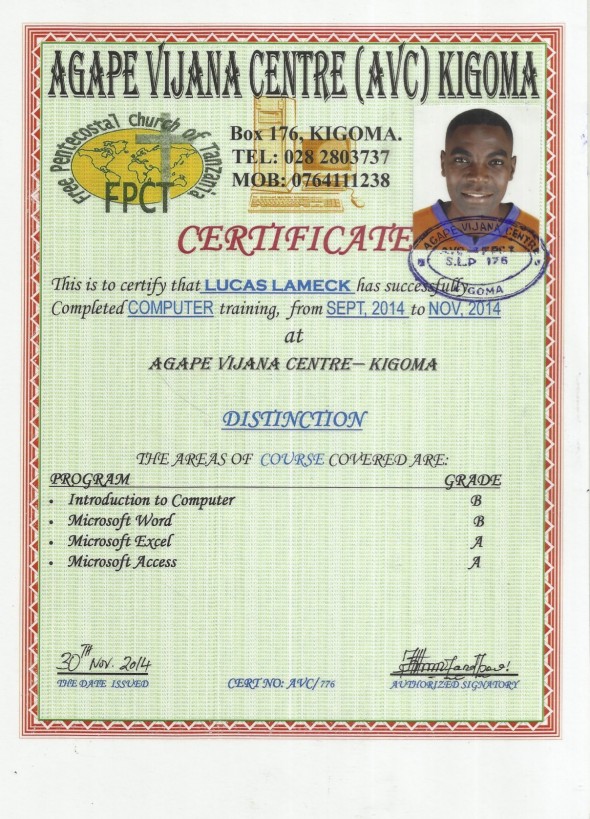 In November 2014, Lucas completed a computer training program in Kigoma. In this program, Lucas learned important word processing skills. He regularly uses these skills to track our students’ progress and write program manager reports for Project Wezesha and Girls Education International.
In November 2014, Lucas completed a computer training program in Kigoma. In this program, Lucas learned important word processing skills. He regularly uses these skills to track our students’ progress and write program manager reports for Project Wezesha and Girls Education International.